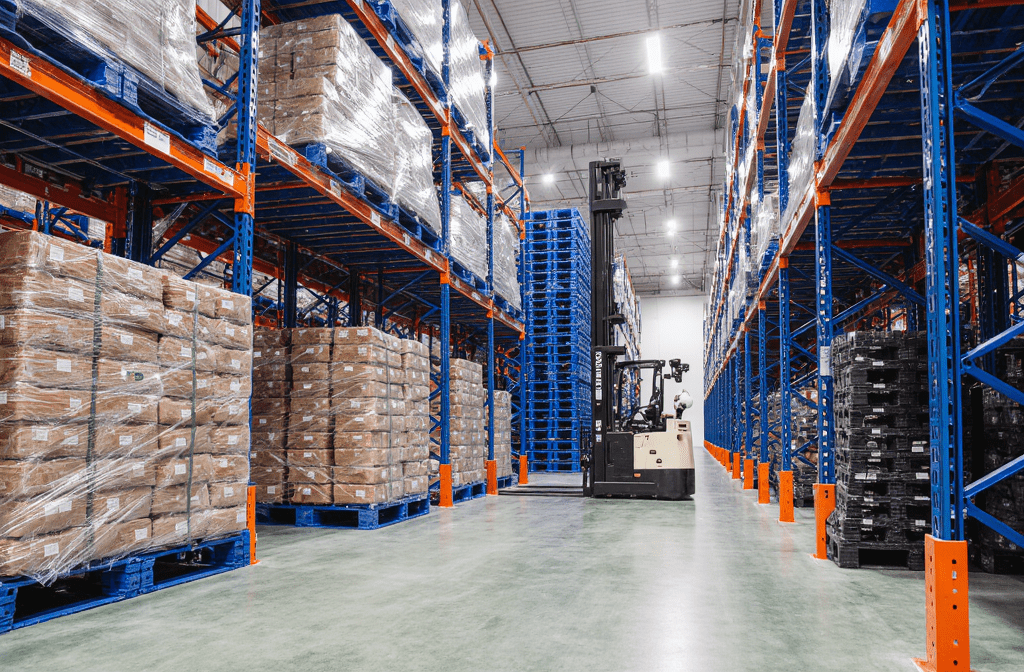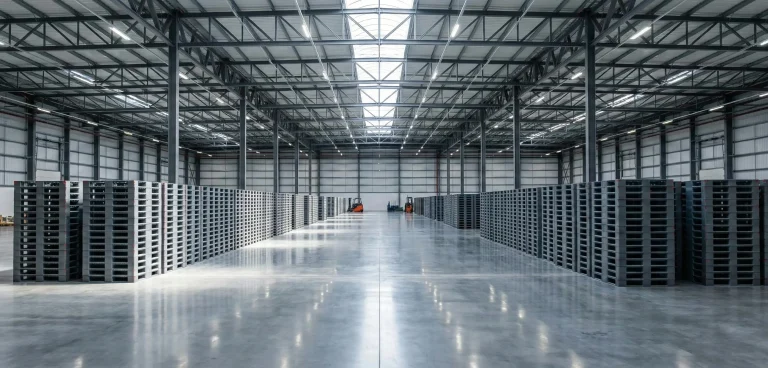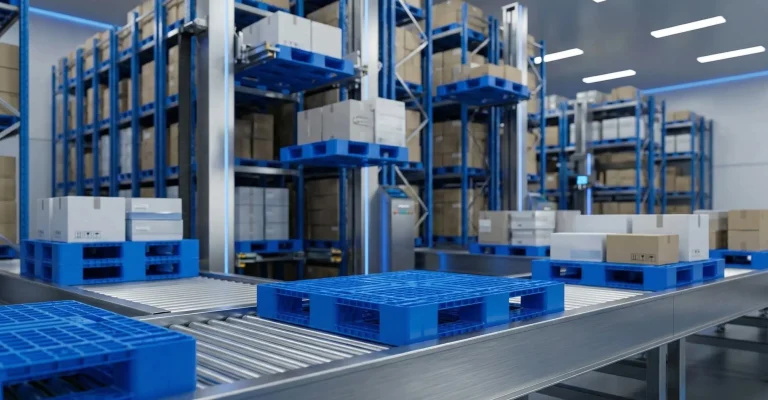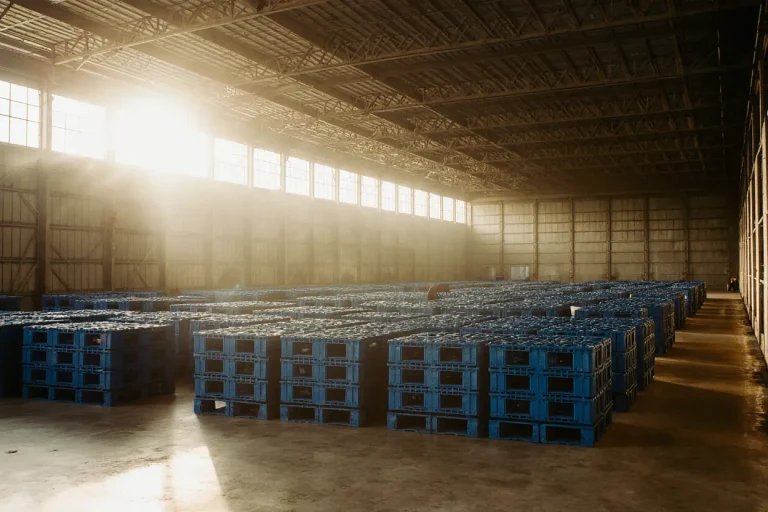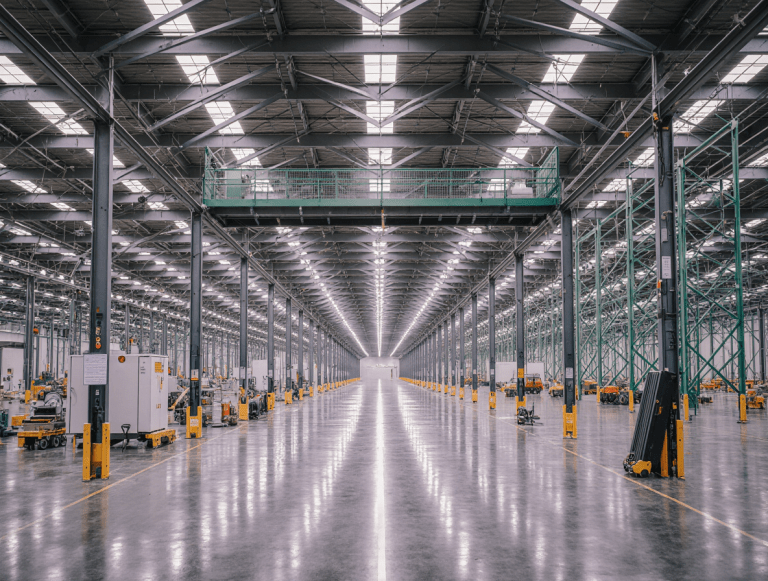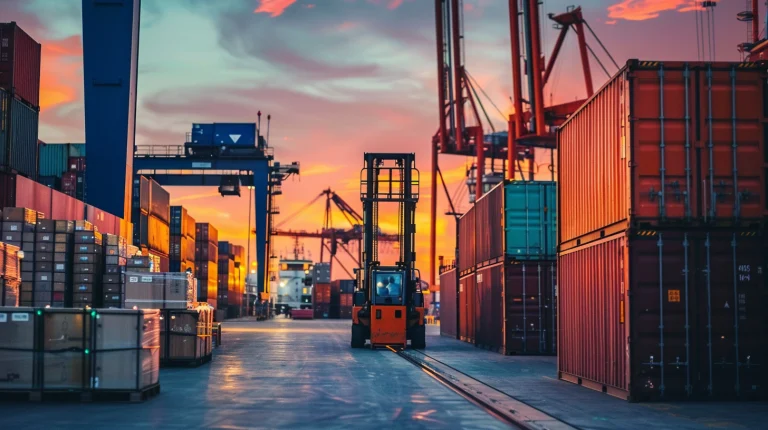The global cold chain logistics market is estimated to be valued at USD 393.2 billion in 2025 and projected to reach USD 1,632.6 billion by 2035, with a CAGR (Compound Annual Growth Rate) of 15.3% over the forecast period 1.
This means that every day, billions of temperature-sensitive goods, from fresh produce and frozen seafood to life-saving pharmaceuticals, are transported across the globe.
Ensuring these products arrive in pristine condition requires more than just reliable refrigeration. At the very foundation of cold chain logistics lies a critical element that’s often overlooked: the pallet.
Traditionally, wooden pallets have been the go-to choice. But in environments where hygiene, durability, and compliance are non-negotiable, wood often falls short.
Hygienic plastic pallets are emerging as the smarter, safer alternative, offering cold chain operators the reliability they need without compromising on quality or safety.
The pitfalls of wood pallets in cold chain logistics
Maintaining product integrity in cold chain logistics demands strict adherence to hygiene and temperature control. Unfortunately, wooden pallets pose several challenges:
- Requires constant hygiene upkeep: If not cleaned properly, wood pallets can become a breeding ground for mold, bacteria, and pathogens.
- Risk of contamination: Splinters, cracks, and porous surfaces make thorough cleaning nearly impossible.
- Structural issues: Low temperatures can cause wooden pallets to warp or weaken, leading to potential product damage
- Compliance concerns: Hygienic pallets for HACCP industries must prevent pests, bacteria, and fungi growth. Plastic pallets, with their non-porous smooth surfaces, are preferred for food safety in HACCP and GMP environments due to easier cleaning and sanitation 2.
For industries handling food, beverages, and pharmaceuticals, these weaknesses aren’t just inconvenient — they’re costly risks.Explore our specialised pallet solutions for a wide range of industrial applications.
Plastic hygiene pallets: Where cleanliness meets performance
Plastic pallets are purpose-built to overcome the hygiene and durability issues of wood, making them a perfect fit for cold chain operations. Their advantages can be broken down into four key areas:
1. Clean and hygienic
Plastic pallets feature smooth, non-porous surfaces that do not absorb moisture. They are easy to wash, resistant to mold and bacteria, and can be sanitised repeatedly without degrading. This makes them fully compliant with HACCP and GMP requirements.
2. Durable with high load capacity
Plastic pallets generally last several times longer than wooden pallets, which often need replacement after much fewer uses. Plastic’s resistance to moisture, splintering, and damage makes it more durable and cost-effective in the long run, especially for cold chain logistics where hygiene and reliability are critical 3.
3. Standardised and compliant
Plastic pallets are manufactured with precision dimensions, making them highly reliable for use in automated systems like ASRS (Automated Storage and Retrieval Systems), cold room, and conventional warehouse. This consistency supports seamless operations across warehouses and distribution centers.
4. Sustainable
Far from being single-use, plastic pallets are recyclable and boast a much longer lifespan than wooden pallets, as we’ve already explained previously.
By adopting plastic pallets, companies reduce waste and align with their ESG (Environmental, Social, and Governance) goals.
To help client partners remain as sustainable as possible, IntracoPallet offers to buy back damaged plastic pallets as a part of our corporate responsibility, subject to terms and conditions.
Discover how IntracoPallet supports greener supply chains through our sustainability initiatives.
Plastic vs wooden pallets: A quick comparison
For businesses in cold chain logistics, the differences are clear:
- Hygiene: Plastic (non-porous, easy to sanitise) vs Wood (absorbs moisture, harbors bacteria).
- Durability: Plastic (resistant to cracking, strong in cold) vs Wood (weakens, splinters).
- Compliance: Plastic (HACCP/GMP-ready) vs Wood (risk of non-compliance).
- Lifecycle cost: Plastic (long-lasting, recyclable) vs Wood (frequent replacement needed).
- Safety: Plastic (no nails, no splinters) vs Wood (physical hazards common).
In short, plastic pallets outperform wood in every cold-chain critical factor.
Meet IntracoPallet’s solutions engineered for cold chain operations
As Malaysia’s leading plastic pallet manufacturer, IntracoPallet has set the benchmark for cold chain hygiene and performance. Our specialised product lines ensure businesses can meet the toughest requirements with confidence.
S-Series (Super Hygiene Pallets)
- Flat, smooth top surface for maximum hygiene.
- Ideal for HACCP and GMP environments.
- Suitable across food, beverage, pharmaceutical, paper, and printing industries.
- Many models are reinforced with steel, delivering high static and dynamic load capacities (up to 6,000 kg static, 1,500 kg dynamic).
- Available in multiple configurations: single-sided, double-deck, reversible, and 9-leg.
P-Series (Pharmaceutical Pallets)
- Flat, smooth surfaces across the entire pallet, including under-deck.
- Designed for ultra-hygienic pharmaceutical applications.
- Stackable and rackable for maximum storage efficiency.
- All models reinforced with steel for exceptional strength.
H-series (Heavy Duty Pallets)
- Ideal for coldroom applications due to meshed top design that permits air ventilation.
- High dynamic load capacities, with some reversible models supporting up to 2,000kg.
- Reversible and double-deck designs enable flexible use across stacking, storage, and transport.
Futureproof your cold chain with hygienic plastic pallets
Wooden pallets have served Malaysian businesses well for decades, making them a common choice for general logistics.
But when it comes to the cold chain, their limitations are immediately apparent: Wood absorbs moisture, can harbor bacteria, and may deteriorate faster in chilled or frozen environments.
That’s why many companies are making the switch to hygienic plastic pallets. They provide cleaner handling, easier sanitation, and greater consistency under extreme temperatures. Most importantly, they support compliance with strict standards like HACCP and GMP, which are essential for Malaysia’s growing food, beverage, and pharmaceutical sectors.
With advanced designs such as the S-Series, P-Series, and H-Series, IntracoPallet offers warehouse solutions that balance cost efficiency with long-term performance, helping Malaysian businesses maintain hygienic storage, improve racking safety, and ensure reliable operations across the cold chain.
Talk to IntracoPallet today to learn how your business can run smarter, hygienic cold chain solutions.

